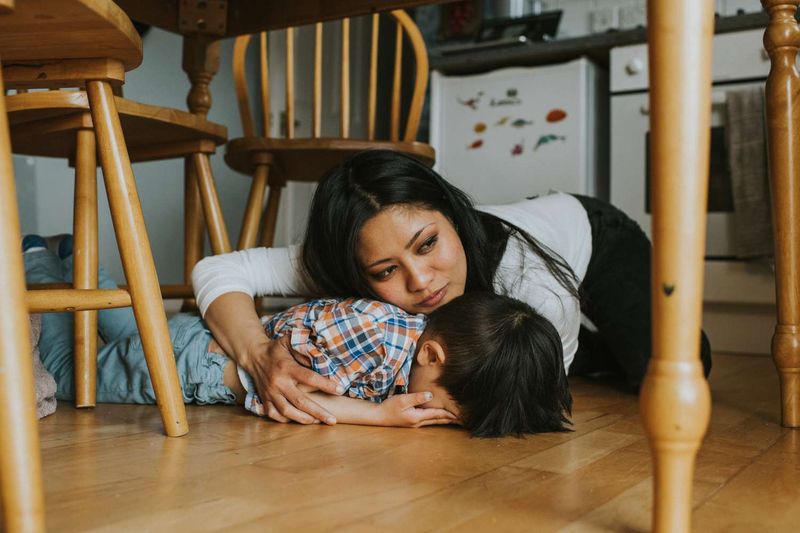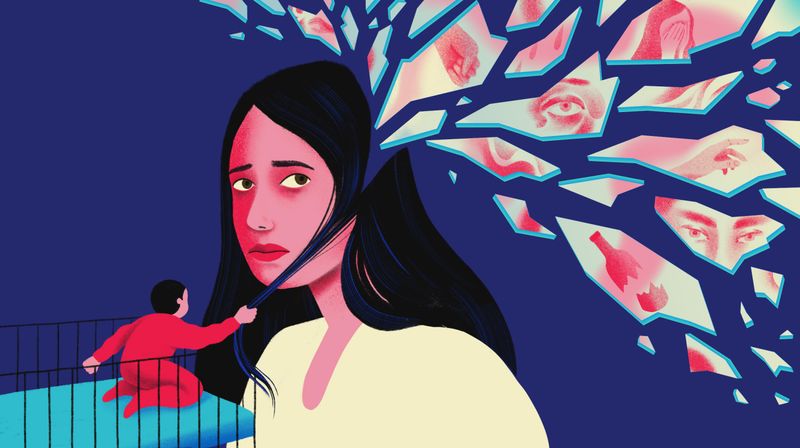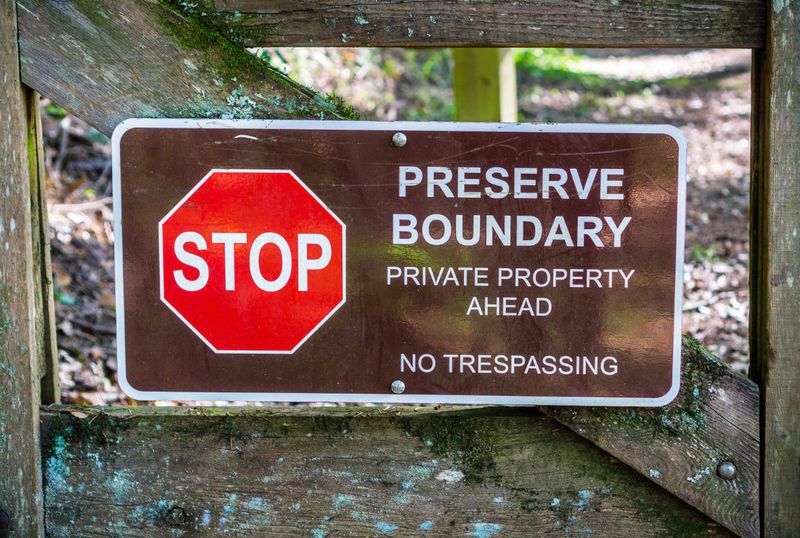You know the feeling when you look at your mom and realize she’s carrying invisible scars? Most of us sense it long before we have words: her sharp tone when she’s scared, the way she checks out during arguments, or that familiar ache of wanting her to really see you.
Trauma doesn’t just stay in the past. It echoes—into the way she loves, fights, shuts down, and even into the way you walk through the world now. If you’re reading this, you probably already know something’s off. You just want to name it, and maybe finally stop blaming yourself. I get it.
Here are sixteen signs—pulled from research and real life—that your mom’s childhood pain is bleeding into your story, too. Read with honesty. No judgment, just clarity.
1. Dificuldade em confiar nos outros
Trust wasn’t something your mom handed out like hugs or cookies. It was a hard currency, earned slowly or never at all. Maybe you noticed how she double-checked every lock and asked who you were with, and then asked again twenty minutes later.
You’d bring home a friend, and she’d watch them as if waiting for a sign—never fully convinced anyone’s safe. She wanted to believe in people, but the world had given her too many reasons not to. So you grew up learning to keep your cards close, too.
Research shows that betrayal or neglect in childhood can make trusting others feel like walking through a minefield. You might find yourself expecting people to disappoint you or keeping secrets even from those you love. It’s not paranoia; it’s a survival skill she passed down without meaning to.
2. Emotional Dysregulation
Ever felt like your mom’s emotions were the weather—unpredictable, sometimes sunny, often stormy? One minute she was laughing, the next she snapped. Or maybe she’d go silent, eyes glazed over, leaving you scrambling to fix something you couldn’t even name.
That wasn’t just a bad day. That was her nervous system, trained by early chaos, struggling to find steady ground. Emotional dysregulation is a classic sign of childhood trauma—her mood changes weren’t always about you.
Living around this can mess with your own sense of emotional safety. You might catch yourself tiptoeing, people-pleasing, or feeling too much (or nothing at all). You learned to tune your antenna to her mood before your own. That pattern? It sticks.
3. Hypervigilance
Some people relax in their homes. Your mom was always listening for the next shoe to drop. She noticed every odd sound, every missed call, every subtle shift in a friend’s tone. She called it being careful.
To you, it just felt exhausting. Hypervigilance isn’t just worry; it’s a constant, consuming readiness for danger. Research links this state to early experiences of unpredictability or threat.
If you grew up with this, you probably scan for danger too—checking your phone obsessively, replaying conversations, never quite able to exhale. What started as her survival instinct became your baseline. It’s not just her anxiety; it’s the air you both breathed.
4. Avoidance Behaviors
Do you notice how your mom suddenly needed to leave when things got tense? Or maybe she changed the subject every time an uncomfortable memory surfaced. She might zone out during tough conversations, eyes glazing over like she’s somewhere else.
This is more than just dodging social awkwardness—it’s a survival response. People who’ve been hurt as kids often avoid situations or feelings that remind them of pain. It’s a way to keep old wounds from ripping open.
When you find yourself ghosting people or numbing out in difficult moments, you’re not weird. You learned avoidance from the best. Sometimes, escaping felt safer than facing the storm, even when the room was full of sunshine.
5. Low Self-Esteem and Self-Worth
You could see it in the way she picked herself apart—every wrinkle, every word she wished she’d swallowed. She might have brushed off compliments or made jokes at her own expense. Deep down, she never felt enough.
Research says that childhood trauma plants seeds of unworthiness. Maybe someone told her she was too loud, too needy, too much—or not enough at all. Those messages became the script in her head.
Guess what? That script can play in your head, too. If you’re chasing approval or second-guessing your every move, the echo isn’t just in her voice. It’s in how you learned to measure your value, always a little short.
6. Difficulty Setting Boundaries
Maybe your mom couldn’t say no, even when she wanted to scream it. She’d do favors for people who didn’t deserve them, then vent for hours. Or maybe she drew lines so thick you could never get close.
Childhood trauma can shatter someone’s sense of what’s okay and what’s not. If her boundaries were either invisible or ironclad, it was her way of surviving—either by pleasing everyone or shutting everyone out.
Odds are, you picked up those habits. Do you let people walk all over you, or do you build walls out of old pain? The way you say "sim" ou "não" might have been written long before you learned to talk.
7. People-Pleasing and Codependency
She always made sure everyone else was fed, even if she skipped dinner herself. Her smile for guests was stretched a little too thin, the kind you give when you’re desperate to be liked. If conflict showed up, she was quick to smooth it over—even if it meant swallowing her own words.
People-pleasing isn’t kindness in overdrive. It’s often codependency—a survival tactic rooted in fear of being rejected or alone. When love felt conditional as a child, she learned to earn it by making herself indispensable.
If your own needs take a backseat in relationships, or if you feel responsible for everyone’s happiness, you’re not alone. That urge to fix, appease, or disappear? It’s a legacy of her old wounds, still shaping how you show up in the world.
8. Perfeccionismo
Ever watched your mom scrub the counters until they gleamed, or rewrite a grocery list five times? To you, it seemed like she needed everything to be flawless. But perfectionism is rarely about neatness—it’s about control.
When childhood was unpredictable or harsh, she built order wherever she could. Mistakes weren’t just errors—they felt like evidence she wasn’t safe or worthy.
Are you terrified to mess up or drowning in self-criticism? Well, you’re living out her old coping strategy. It might look impressive, but underneath, it’s just a kid trying desperately to keep chaos out of reach.
9. Substance Abuse and Addiction
It started with a drink to take the edge off—or maybe just one more to “celebrate.” Over time, you noticed how she reached for wine or pills when things got too much. She called it unwinding, but her eyes gave away the struggle.
Research connects childhood trauma to higher rates of addiction. Substances become a shortcut to numbness, a way to escape feelings that feel too big to face.
Have you ever wondered why you reach for comfort in a glass or can’t stop scrolling? Turns out, it’s not just habit. It’s an old strategy for silence, passed down like a family recipe, only it leaves more wounds than it heals.
10. Chronic Physical Symptoms
She complained about the headaches, the aches that never really went away, the nights she tossed and turned. Doctors couldn’t find anything wrong, but the pain was real. Sometimes, her body spoke the words her mouth never could.
Unresolved childhood trauma shows up in bodies as much as minds. Chronic pain, fatigue, and sleep problems are common among survivors. It’s like the old fear found a new home in her muscles and bones.
When you catch yourself ignoring your own body or dismissing pain as “just stress,” remember: you learned to downplay those signals. Your body, like hers, remembers the stories your mind tries to forget.
11. Flashbacks and Intrusive Thoughts
She’d drift away in the middle of a conversation, eyes unfocused, somewhere you couldn’t follow. Later, you might find her clutching an old photo or humming a song she never sang out loud. Those weren’t just daydreams—they were flashbacks, memories popping up uninvited.
Intrusive thoughts are a signature of trauma. They crash in suddenly, leaving her shaken, or hijack her attention when she least expected it.
If you sometimes get stuck replaying old fights, or reliving moments you never understood, that’s not weakness. It’s your brain’s way of trying to make sense of chaos. She did it, too—hidden, hurting, hoping the past would finally let go.
12. Difficulty Expressing Vulnerability
Did you ever tried to open up to your mom, only to watch her armor lock into place? She might have changed the subject, laughed it off, or just gone silent. Vulnerability felt like exposure—a risk she learned never to take.
Kids who grow up with pain learn quickly that feelings can be dangerous. Maybe she was told to “toughen up,” or maybe she learned to hide tears so no one could use them against her.
Now you struggle to admit when you’re hurting and close moments make you want to run. Except, this didn’t start with you. You learned the rules at her feet: walls keep you safe, but they also keep out love.
13. Fear of Abandonment
She checked in more than most mothers—texts before you left, calls if you were five minutes late. There was always a hint of worry, as if she expected you to disappear. That fear didn’t come from nowhere.
This wounds run deep. If she lost someone she loved as a child, or had parents who left emotionally or physically, she learned to cling tight. Love felt fleeting, always just out of reach.
You might catch yourself needing reassurance in relationships, or panicking when people pull away. You didn’t invent that fear; you inherited it, bundled up in her need to keep you close—sometimes so close, it hurt.
14. Self-Blame
Does this ring a bell: she apologized for everything—even things she couldn’t control? I believe it does. If something went wrong, your mother was first to shoulder the blame. She’d replay conversations, hunting for her own fault lines.
Children of trauma grow up believing everything is their fault—that if they were just better, quieter, stronger, the pain wouldn’t have happened. That belief never really let go.
So if you find yourself over-apologizing or carrying guilt like a second skin, look back—not just at yourself, but at where she learned to live in the land of self-blame. It’s a heavy inheritance, but one you can start to lay down.
15. Overreaction to Stressful Situations
One dropped dish, and suddenly she’s yelling, crying, or shutting down. Her reaction never quite matched the moment. You learned early to watch her face for cues, always braced for impact.
This isn’t just over-sensitivity; it’s the result of a nervous system that learned to expect disaster. When little things trigger big feelings, it’s a sign of old wounds still raw beneath the surface.
You may catch yourself spiraling over small setbacks, or feeling like every mistake is the end of the world. That’s not drama—it’s a hand-me-down from her survival mode. It doesn’t have to be your default anymore.
16. Emotional Numbness
Your mother didn’t always get angry, or cry, or laugh. Sometimes, she just disappeared—right there in the room, eyes flat, voice dull. You could wave your hand, and she’d barely notice.
This is the mind’s way of surviving what feels unbearable. When you can’t stop the pain, you learn to tune it all out—joy included. It’s like life got switched to grayscale, and no one remembered to tell you.
Do you feel disconnected from your own feelings, or worry that you’re unreachable? No, you’re not cold. You just learned that being numb is safer than being broken open. The color can come back. It starts with naming what was lost.

















